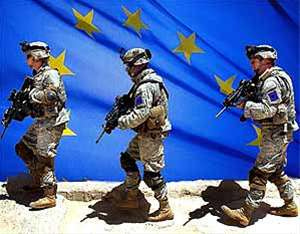In a world defined by transboundary security threats, NATO has refined its mandate, moving beyond collective defense to undertake crisis management and collective security. As such, NATO missions increasingly involve soldiers from non-NATO members, its Operational Partners. Operational Partners, for NATO, are countries that contribute forces or capabilities to a NATO-led operation or support it in other ways that the North Atlantic Council formally accepts on the basis of political and military advice as a contribution. But who are NATO’s Operational Partners?
Although 33 states have been Operational Partners at some point, the following states have shown consistent engagement with the Alliance. These states can be grouped into four clusters:
I. European Countries
Sweden, Finland, Switzerland, Ireland, and Austria are wealthy European Operational Partners. Aside from Switzerland, these states are all EU members. Switzerland has signed many agreements with the EU and is highly integrated within Europe. In addition to contributing in operations, these partners support NATO’s human rights, reforms, and stabilization activities with other partners, reflecting the interest of these states in using NATO as a tool to stabilize Europe.
II. Other Wealthy Democracies
Australia, New Zealand, South Korea, Japan, and Singapore are global partners that have provided significant support for out-of-theatre operations and that, to differing extents, share NATO’s democratic values. In a global Alliance, these contributions are increasingly important. Except Singapore, these nations are all major non-NATO allies (MNNAs), reflecting the importance of bilateral relations with the United States as a reason for contributing to NATO operations. In addition, shared perceptions of the existing security environment generate common interests, especially as NATO’s role in crisis management has increased.
III. Aspiring Allies
Georgia, Macedonia, Montenegro, and Bosnia and Herzegovina (and until recently Ukraine) see participation in NATO missions as an opportunity to demonstrate ability as future Allies. They also see operational contributions as an opportunity to improve training and gain experience in multinational forces. Particular bilateral relations, especially with the US, are often important reasons to contribute. Of these countries, Georgia is the largest contributor; notably, it offered the largest non-NATO contribution to the International Security Assistance Force (ISAF). Azerbaijan and Armenia, while not prospective members at this point, contribute to NATO-led operations for similar reasons.
IV. Regional Powers in the Middle East and North Africa
Qatar, Bahrain, and Morocco are Operational Partners that engage within NATO regional dialogue frameworks. Qatar and Bahrain participate in the Istanbul Cooperation Initiative (ICI) and Morocco is a part of the Mediterranean Dialogue (MD). These countries contribute to NATO operations in addition to being important regional interlocutors in the Middle East.



